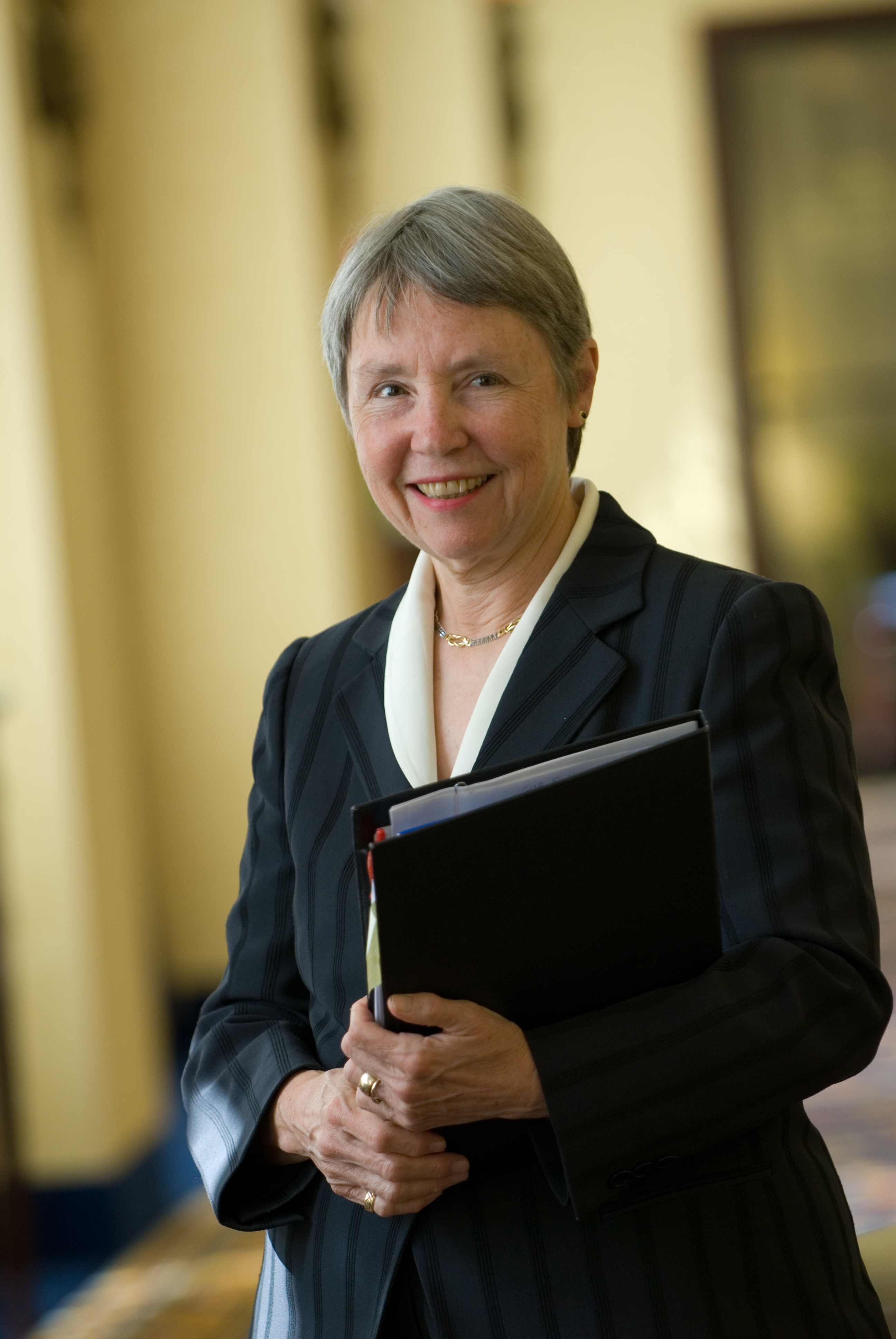A Lifetime Love

At the age of 9, Carol Aschenbrener, MD (68MS, 75R), knew she wanted to be a physician.
“I really liked the combination of intellectual stimulation and being able to do good for others,” she says. “And I never wavered from wanting to be a physician.”
After earning degrees at Clarke College, the University of Iowa, and the University of North Carolina at Chapel Hill, Dr. Aschenbrener returned to Iowa City to complete her medical residency. What followed was a nearly 40-year career of advancing medical education—from teaching medical students and residents in pathology to making contributions to faculty and leadership development.
At the UI Roy J. and Lucille A. Carver College of Medicine, Dr. Aschenbrener held numerous roles in the dean’s office, including as senior executive dean. In 1992, she became the chancellor of the University of Nebraska Medical Center, becoming the first woman in the U.S. to head a public academic health center.
After running her own consulting business; playing a role in the development of Executive Leadership in Academic Medicine, the nation’s only program focused on preparing women to move into positions of institutional power; and spending a decade advancing the efforts of the Association of American Medical Colleges, Dr. Aschenbrener retired from full-time work in 2014.
While Dr. Aschenbrener left Iowa more than two decades ago, her memories of her experiences in Iowa City never left her.
“I came of age, both professionally and personally, at the University of Iowa,” says Carol, who currently lives in Washington, DC, with her partner, Cathie Siders, MD (73BS, 75MA, 87PhD). “I became the person I am today while working with so many good physicians, good leaders, and most important, good people who nurtured my professional and personal development.”
Mentors George Penick, MD, and John Eckstein, MD (50MD, 54R),—amongst others—shared Carol’s values and deepened her appreciation for the medical profession, and those mentors are a major reason why Dr. Aschenbrener has left a bequest in her will to support the UI Carver College of Medicine.
“After I left Iowa, I always had the sense that if things didn’t go well and I needed to go somewhere, I could always come back,” she says. “I never had a stronger sense of belonging anywhere else than when I was at Iowa.”
Her bequest will provide the UI Carver College of Medicine with unrestricted support, something she found extremely important during her time in the dean’s office.
“Unrestricted dollars are particularly important to make leaps forward,” she says. “They’re important when you need a little leverage—to pilot an education initiative, provide start-up funds for new faculty, or bridge the gap for faculty research funding. By committing unrestricted funds, I’m willing to trust future leaders to do what is good for the college and to advance its mission.”
